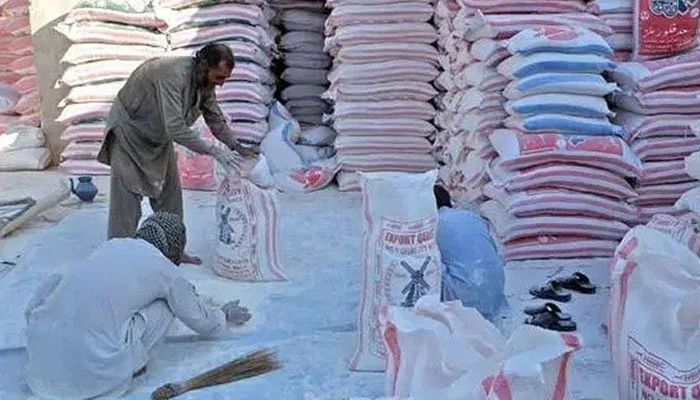The price of flour has witnessed a significant increase in Lahore, with a 20kg bag now costing over Rs. 2,700. This surge comes as flour mill owners blame the Punjab government for not providing them with government-subsidized wheat, leading to a rise in market prices from Rs. 4,300 to Rs. 4,700 per 40kg.
According to media reports, Mill owners further claim that the government has not issued a notification regarding the fixed price of flour, which should range between Rs. 3,500 and Rs. 3,900. This lack of regulation has compounded the issue, allowing prices to spiral out of control.
The rising flour prices coincide with an overall increase in inflation across the country. The Pakistan Bureau of Statistics (PBS) has reported a weekly inflation rate of 0.71%, pushing the annual inflation rate to 29.88%. The group most affected by inflation is the one with a monthly income of Rs. 22,889 to Rs. 29,517, experiencing an inflation rate of 30.22%.
PBS data highlights the rising prices of essential commodities, with potatoes up by 1.61%, onions up by 25.25%, tomatoes up by 25.58%, chicken up by 10.79%, eggs up by 1.30%, tea leaves up by 1.58%, garlic up by 0.50%, basmati rice up by 0.19%, and firewood up by 0.05%.
On the other hand, some commodities have experienced price decreases, including garh (down 2.66%), cooking oil (down 1.62%), LKPG (down 1.05%), dal masoor (down 0.93%), washing soap (down 0.93%), and mustard oil (down 0.32%). The rising cost of flour and overall inflation is placing a significant burden on Pakistani households, particularly those with lower incomes. The government needs to address these issues promptly to alleviate the financial strain on the population.









